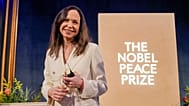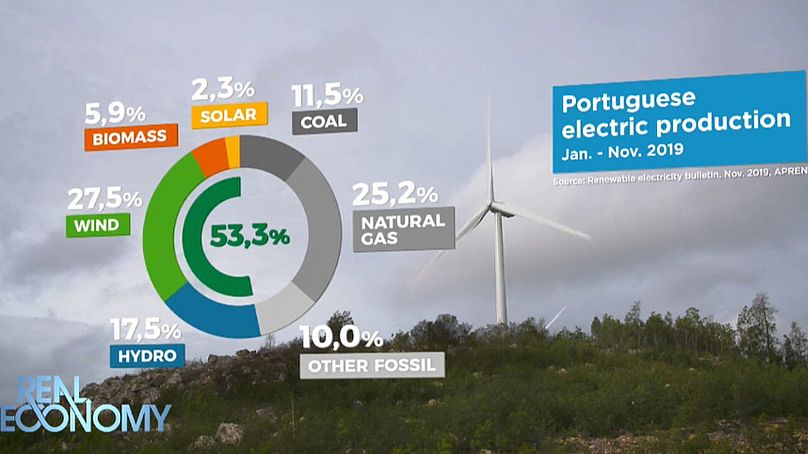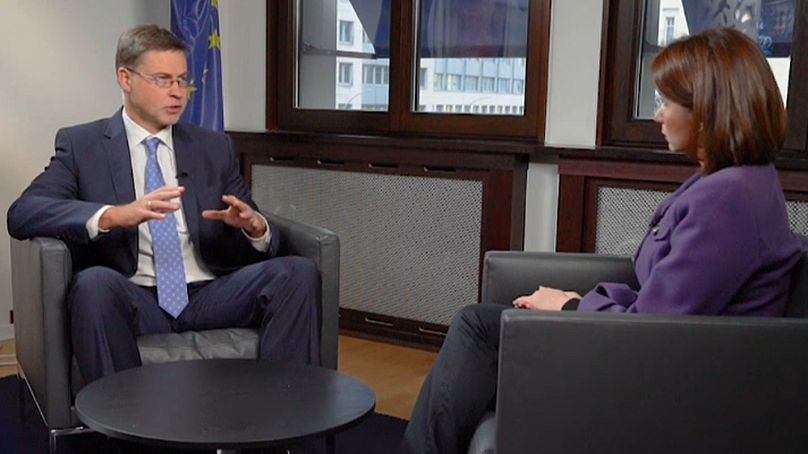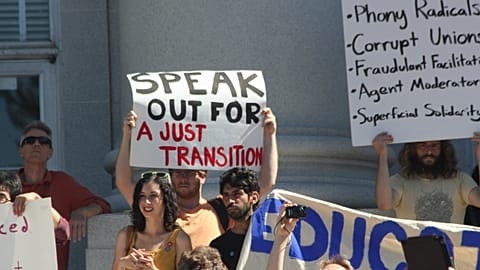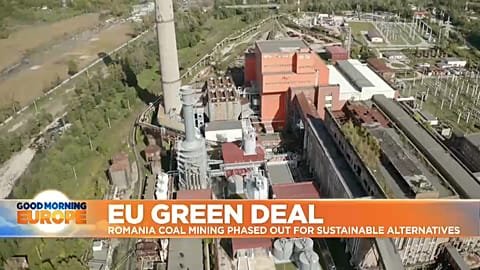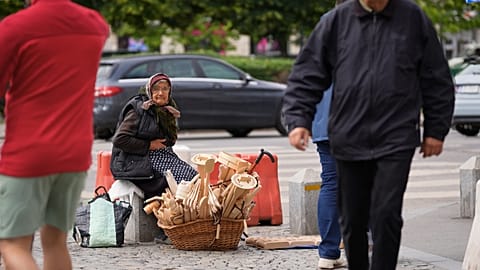Nearly every major aspect of the European Union's economy is set to be reassessed in light of the climate and ecological emergency.
The European Union is about to undergo the biggest overhaul of policy since its foundation, with nearly every major aspect of the economy set to be reassessed in light of the climate and ecological emergency.
The Green New Deal lays out a grand European plan for tackling climate change.
The targets to be reached by 2030 are a minimum 40 per cent cut in greenhouse gas emissions compared to 1990 levels, a share of at least 32 per cent renewables in final energy consumption and at least 32.5 per cent in energy savings.
Europe will have to direct a 1-2 per cent of its annual GDP towards the green economy, including new infrastructure, public procurement, research and development and industrial retooling.
The EU Commission estimates that additional investments are needed to achieve the EU’s 2030 climate target total of €260 billion per year.
However, it is proposing to dedicate €45 billion a year from 2021- 2027.
So that’s not enough to reach the target and everybody is asking who is going to pay the bill.
The €215 billion shortfall will have to be made up by contributions from households, corporations and above all national governments.
Winds of change in Portugal
Some EU member states are performing quite well, especially when it comes to renewables.
The Portuguese government has pledged to close the only two remaining coal power plants still producing electricity within the next three years.
Portugal has over 300 days of sun every year. That, and the strong winds from the Atlantic, give the country a major advantage when it comes to renewable energy.
Completed last summer thanks to a European Investment Bank loan, the Energias de Portugal (EDP) wind farm at Penacova is one of Portugal's newest clean energy projects.
Hugo Costa, deputy country manager at EDP Renováveis Portugal, says the 13 turbines have a total capacity of 46.8 Megawatts. They were manufactured locally, a move that could prove beneficial in the future.
From January to November last year, 53 per cent of Portugal's energy came from renewable sources, while in March 2018 renewable energy production briefly exceeded the whole country's total consumption, covering more than 103 per cent of domestic needs.
This opens the possibility of electricity export revenues for the country. However, at the moment there is a bottleneck in the European electricity grid in the Pyrenees.
Pedro Amaral Jorge, President of the Portuguese Association of Renewable Energy, says moves are underway to open the grid.
“I think Iberia, together, with Portugal included, can be the next Qatar for renewable energy. When you look at the wind, and hydro, and sun, we were able with the proper interconnections between Iberia and France to be able to supply tons of electricity from renewable sources from both sun and wind.”
Catarina Roseta Palma, an environmental and resource economist based at ISCTE – University Institute of Lisbon, told Real Economy: “It will depend on how the grid is managed. We are already interconnected with Spain, and there is a couple of interconnections being worked on.
“But that's not all there is. There's this whole other side of the market, which is demand, which you can use. It's what we call 'demand-response strategies', where you pay companies that shut down their equipment when there is a need for a peak load in consumption.”
Changing how we live and work
The new EU Commission President Ursula Von der Leyen has promised €100 billion to help finance the transition to a low-carbon economy. But there is a lot more to be done.
Real Economy spoke to the Vice-President of the EU Commission, Valdis Dombrovskis, to ask what this enormous transition means for citizens and companies.
Efi Koustokosta, Euronews: "We've seen that Portugal, for example, has done a lot for the transition to a greener economy, especially when it comes to renewables. If member states can do so much by themselves, what more can this Green Deal from the EU Commission give?"
Valdis Dombrovskis, Vice-President of the EU Commission: “Indeed, this will be not just meeting some emissions targets, this requires some substantial transformation of the economy. So, that's what the European Green Deal is about - how we ensure this transformation of the economy, how we move to the carbon neutral economy in a way that is socially acceptable, in a way that preserves our social market economy model. The Just transition mechanism will be part of the picture, it is going to be part of the sustainable Europe Investment Plan which aims to mobilise in general investment for this green transition, basically aiming to unlock at least 1 trillion euros of investment over the next decade. And as part of this, there’s going to be the Just transition mechanism which is more targeted to support the regions and sectors which are most affected by this transition, like for example coal regions."
Efi Koustokosta, Euronews: "What is a green investment for you? What is green for the EU Commission?"
Valdis Dombrovskis, Vice-President of the EU Commission: "The EU has reached an agreement on the classification system, on the green list of green and sustainable economic activities. It basically goes to six environmental categories starting from climate mitigation, climate adaptation, biodiversity, circular economy, waste management, marine ecosystems and so forth. And it basically entails what can be described as green economic activities and what are transition activities, which will help us to transition from the current state to the carbon-neutral economy."
Efi Koustokosta, Euronews: "Is it going to be much more expensive for the ordinary citizens if all these investments and goals must be achieved?"
Valdis Dombrovskis, Vice-President of the EU Commission: "One can say yes, certain jobs will disappear, certain fossil fuels will get more expensive but at the same time there will be many new jobs created in the green economy and there will be many new savings which will make green energy and this transition affordable."




